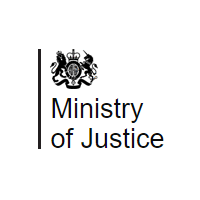
Technological innovations and international prison policies are among things being studied as part of the government’s Sentencing Review.
- Panel of experts appointed to support review chair David Gauke
- Public call for evidence opened for 8 weeks
- Review to consider international best practice to tackle growing prison population and reduce reoffending
The review, which aims to end the crisis in our prisons and make sure the country always has the prisons space needed to keep people safe, will consider how other jurisdictions who have faced similar capacity challenges have been able to tackle rising prison populations and reducing reoffending.
To ensure the review considers all aspects of the justice system, including the impact of changes on victims, an expert panel has been appointed to support independent chair David Gauke. This includes former Chief Executives of the Crown Prosecution Service, Peter Lewis and HMPPS, Michael Spurr, as well as former Lord Chief Justice Lord Burnett and Executive Director of End Violence Against Women Andrea Simon.
The review will be further informed by a call for evidence launched yesterday [14 November 2024] with academics, experts and the public encouraged to share ideas for innovation and reform over the next eight weeks.
Lord Chancellor and Secretary of State for Justice Shabana Mahmood yesterday said:
No Lord Chancellor should be put in the invidious position I was on taking office – faced with a prison system on the verge of collapse. We must make sure there are always a cell to lock up dangerous offenders.
This panel represents a wealth of experience. I have no doubt it will be invaluable in delivering a review which will help set out the long-term plan for our prisons.
The panel appointed to support David Gauke are:
- Lord Burnett – Previous Lord Chief Justice (2017 – 2023)
- Catherine Larsen KPM – A retired inspector from Avon and Somerset whose work included transforming the way rape and serious sexual offences are investigated by the police
- Nicola Padfield KC (Hon) – Criminal Law Barrister and academic at the University of Cambridge and Director of the Cambridge Centre for Criminal Justice
- Sir Peter Lewis – Former Chief Executive of Crown Prosecution Service (2007-2016), Former Registrar of the International Criminal Court (2023).
- Michael Spurr – Former Chief Executive of HMPPS (2010-2019)
- Andrea Simon – Executive Director at End Violence Against Women Coalition (EVAW)
The call for evidence will explore key themes including the structure of sentencing, use of technology as tough alternatives to custody, custodial and non-custodial sentences, as well as the individual needs of both victims and offenders.
Review Chair David Gauke said:
This review will investigate how we can create a more effective criminal justice system, looking to jurisdictions who have faced similar challenges, and at how we can harness new technology to manage offenders in and out of prison.
I welcome responses to the call for evidence which challenge current thinking, are innovative, and which spotlight how best practice can be scaled, so we can build a justice system which works both now and in the future.
Alongside the call for evidence, international learnings will be a central focus for the panel. Sweden and the Netherlands have both used technology to manage offenders in and outside of prison and tackle rising prison populations. This has included an electronic monitoring system integrated between prisons and probation in the Netherlands, and using mobile apps in Sweden to support rehabilitation outside of prison, such as improving attendance at probation meetings.
Texas faced similar capacity challenges to England and Wales in the early 2000s. In 2007, prisons were at capacity and the population was predicted to rise, needing an additional 17,000 cells over the next five years. Under a system implemented by a Republican governor, prisoners can now reduce the time they spend in custody by participating in courses aimed at tackling the root causes of crime, and for good behaviour. The Texan prison population has now decreased by over 20,000 and crime in the area has fallen.
In developing its recommendations, the Sentencing Review will follow 3 core principles to ensure a sustainable justice system:
- make sure prison sentences punish serious offenders and protect the public, and there is always the space in prison for the most dangerous offenders
- look at what more can be done to encourage offenders to turn their backs on a life of crime, and keep the public safe by reducing reoffending
- explore tougher punishments outside of prison to make sure these sentences cut crime while making the best use of taxpayers’ money
The review will submit its findings in full to the Lord Chancellor by Spring 2025.
Notes to Editors
The seven key themes the call for evidence will explore are:
- History and Trends in sentencing
- The Structure of sentencing
- The use of technology within sentencing
- Community sentences
- Custodial sentences
- The progression of custodial sentences
- The individual needs of victims and offenders
This post was originally published on this site be sure to check out more of their content.






